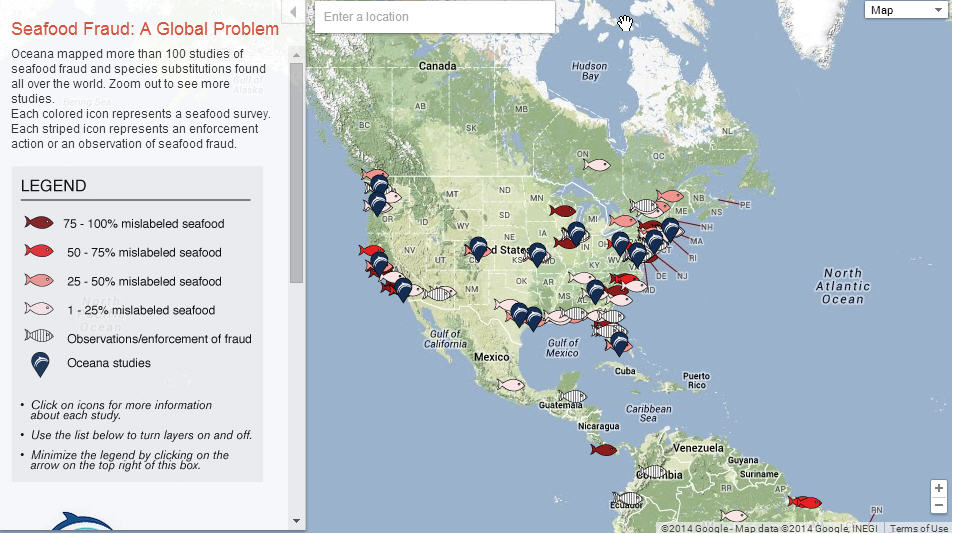Secretary of State John Kerry is directing federal agencies to work together to develop a program to combat seafood fraud. Since there isn't even a program yet, just a directive to create a program, it will be 10 years before various agencies 'work together' to hilarious effect, like when the federal Endangered Species Act tried to restore the Paiute cutthroat trout but was blocked by by the Wilderness Act because the location is so remote it requires a gas-powered generator for the auger - which can't be used in wilderness areas.
Seafood fraud is an issue - last year the advocacy group Oceana found that 39 percent of seafood in stores was mislabeled. That's bad because if people are paying for grouper and getting Asian catfish, they are being bilked, the same way homeopathy and organic food people are being duped by hucksters. It's wrong and tasking individual store owners with the job of figuring it out is unreasonable. It's not a bad thing for Secretary Kerry to be involved in, it sure beats letting him talk to Israel or any other foreign nation.
There has also been a precedent showing that these things can work without causing prices to skyrocket. A century ago a Republican created the Lacey Act, Reagan increased it and then George W. Bush really strengthened it - it killed illegal logging when it came to American consumers. Sure, there is no way to control what the Chinese buy for themselves but in America there has to be a documented supply chain for wood. No one is complaining that furniture is too expensive due to it.
Fraud is bad, because people are paying for a product. If they can't tell the difference, well, that is another issue. I pay more for Coke from Mexico so if it turned out to not be cane sugar, I would be annoyed. It probably isn't happening, Mexico has low levels of seafood fraud also, as you can see in the map below.
Dustin Cranor at Oceana informed me that Oceana can show the extent of seafood fraud using data from 100 studies in 29 countries and the Google Maps Engine. Seafood fraud claims in their studies vary from 1.5 to 100 percent so take that with a grain of salt but we know it is happening if all of those stores in New York City were selling the wrong food.

Credit: Oceana Seafood Fraud Map





Comments